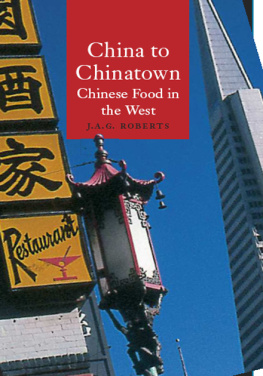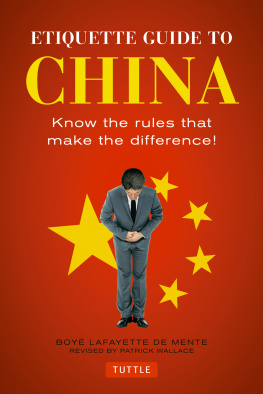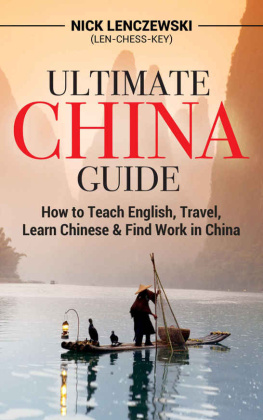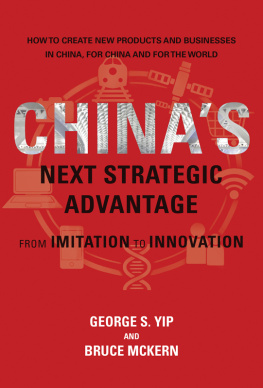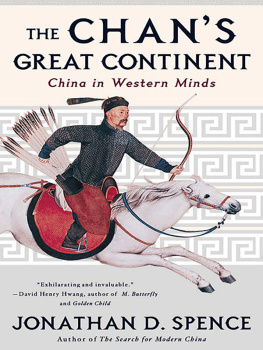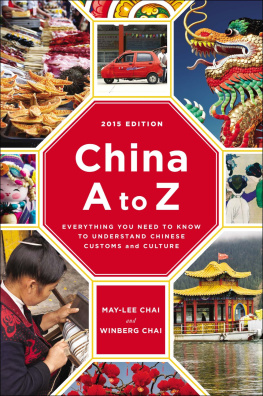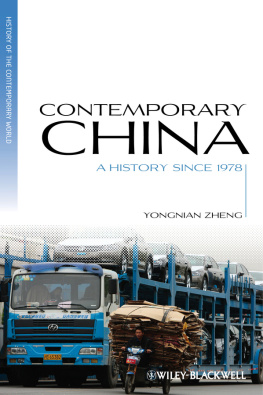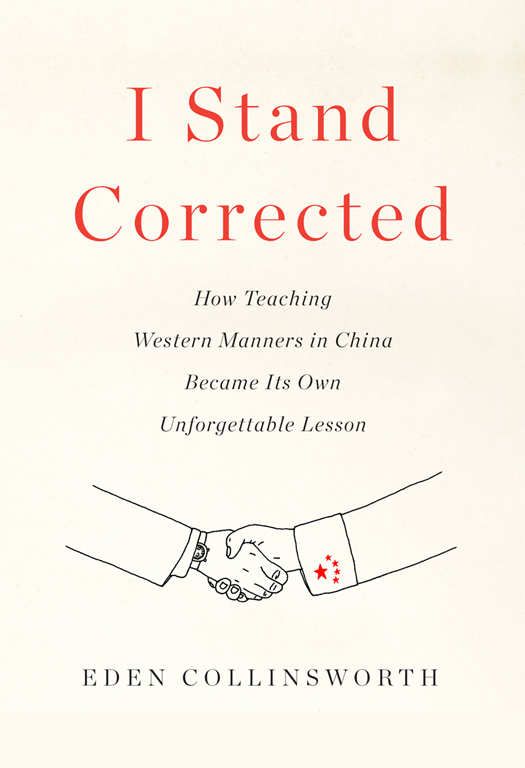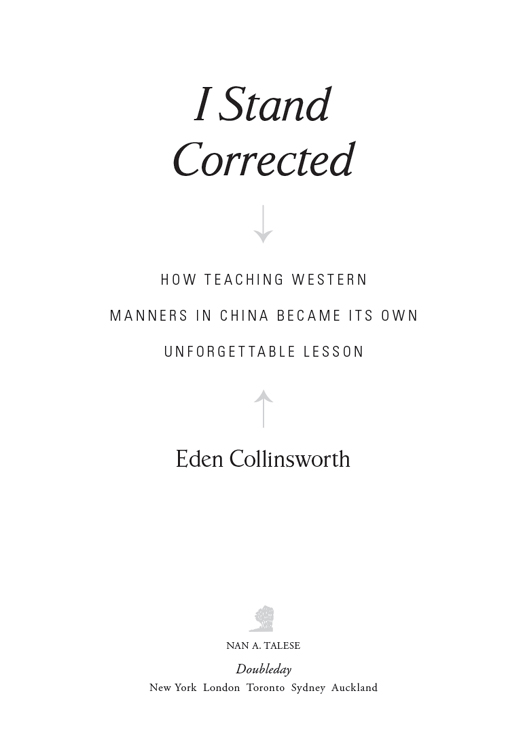All rights reserved. Published in the United States by Nan A. Talese / Doubleday, a division of Random House LLC, New York, and in Canada by Random House of Canada Limited, Toronto, Penguin Random House companies.
D OUBLEDAY is a registered trademark of Random House LLC. Nan A. Talese and the colophon are trademarks of Random House LLC.
You can be comfortable at home for a thousand days, or step out the door and run into trouble.
Chinese proverb
CONTENTS
NOTE TO THE READER
I do not claim to be an expert on China, and though this book includes my personal opinions on that subject, it is an adventure story rather than an analysis. Everything I describe happened, but I have changed the names of some of the people. It was the polite thing to do.
PROLOGUE
Wherein I prove it is sometimes possible to get away with folly
I n the early 1980s, I was invited by a delegation of Chinese businessmen to visit Shenzhen. It was during Chinas progressive campaign of economic opening up, and this former fishing village was growing into a booming metropolis constructed with what looked to be gigantic Lego pieces. At the time, I was twenty-nine. I was also tall, fair skinned, and redheaded, so when I arrived in Shenzhen, it was easy for the Chinese to believe I might have come not from America but from another planet entirely.
What do you mean, hes asked how much I am? was my stunned question to the colleague acting as my translator at a business dinner.
Just that, he told me.
All at the table had been drinking a great deal of baijiudistilled liquor with a high level of alcoholand I asked my colleague if the man inquiring was sober.
He seems to be, was the answer.
Have you correctly translated? I asked. Surely hes asked how much it would cost to buy the company we represent.
No. He means the cost for you, as a woman, reiterated my colleague. Our guest has just inquired about taking permanent possession of you.
Latching on to whatever composure had not yet deserted me, I pointed out that I was not just a womanI was also the president of a company. One who happens to be the host this evening, I made clear.
I can translate what youve just said, volunteered my colleague. But it wont matter.
Why not? I wanted to know.
Because he believes that your gender makes your professional rank insupportable.
And there it was. A full-in-the-face statement that forced upon me the irrefutable difference between my self-image and my status in China. Whatever I may have considered myself, I was at that time, in that place, a Western luxury item possibly to be purchased.
What would you like me to tell him? asked my colleague.
It took a moment before I realized it wasnt so much that I needed to surrender my self-image as that I should consider suspending it for the sake of what might be future business in China. Making a bottom-line calculation with that in mind, I responded with falsehoods calibrated to avoid embarrassment.
First, thank him for his interest, I instructed my colleague. Next tell him I am extremely flattered. And then let him know that, sadly, I belong to someone else.
Five years after a man in China tried to buy me, I gave myself away for free to another in my own country.
Marriage rewarded me with intoxicating happiness. It also pummeled me with impossibilities levied by a man I nonetheless adored. During a particularly desperate timebelieving my husband would change course if he understood what was at stakeI spoke to him of separation. His response was starkly final. He left.
The end of our fifteen-year marriage unmoored my heart and stole my bearings. It also resulted in our eleven-year-old son, Gilliam, being left solely in my care. Inconsolable, I put my trust in time. And with time I realized that, despite the nonnegotiable requirement to support myself and Gilliam, I could choose what was next for us both.
It is often our subconscious self that underlies the choices we make. And so it must have been with my far-reaching decision to travel with Gilliam. That decisionmore instinctive than cohesivemoved me off a single career path toward a wide vista of varied occupations. For the remaining years of Gilliams adolescence, an e-mail service notified me each Wednesday of discounted airfares to international cities. By learning the system of last-minute hotel deals, I could afford to take us on a long weekend in a different foreign place every second month. Seamlessly changing countries, we became a nation of two.
Granted, it was an unorthodox way to raise a son, but there was a screwball comedy buoyancy about it. And nothing in our decade-long saga was as preposterous as the fact that it worked.
Given his upbringing, it wasnt entirely unexpected that at eighteen Gilliam, who was attending a Japanese school, chose to study Chinese at a British university. Two years later his academic program placed him at a Beijing university.
The Chinese have always revered education. Five hundred years before Christ, Confucius set in motion the ideal of rule by educated leaders, and the nature of Chinas educational system has been central to its cultural identity ever since. Making education available to the masses holds out the promise of upward mobility for anyone who can survive the rigors of study and examinations. But survive is the operative word. In China, college openings are limited, and students struggle under what translates to the glory of high scores in preparation for taking gaokao, the life-changing national college entrance exam. Gilliam observed that the extremely competitive nature of the Chinese system, the extraordinarily long hours of repetitive study, the expectation to conform and fit in, the lack of encouragement for creative expressionall of these factors seemed to create roadblocks for the young to achieve an advanced level of emotional intelligence.
He called me one day with an idea.
Ive come to the conclusion that Chinas school system is producing socially disconnected kids, he told me. And Im wondering if their parents would pay for an after-school program.
What kind of program? I asked.
Classes for improvement in something like etiquette, he said.
We discussed Gilliams business proposition until I remembered unpleasant news. My voice dropped when the subject changed.


